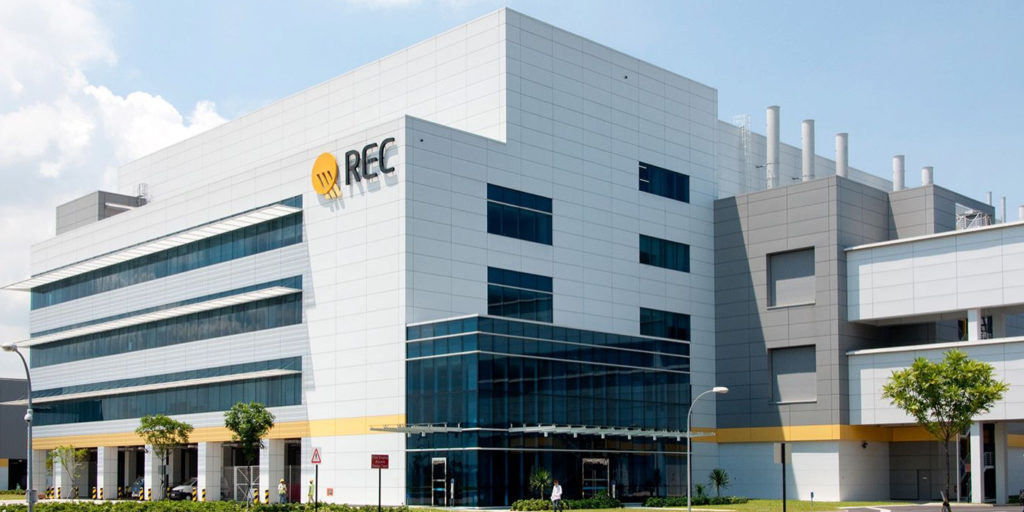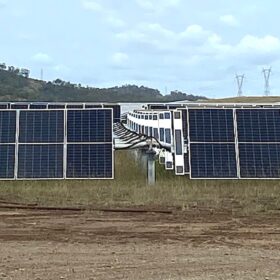In reaction to the claim filed with the Federal Court of Australia, Norwegian solar panel maker REC Group has rejected allegations made by South Korean rival Hanwha Q Cells that it has used Q Cells’ patented passivation technology to increase the performance of its products.
“Based on REC Group’s preliminary analysis of Hanwha’s complaints and the asserted patent, REC Group is confident that it does not infringe Hanwha’s patent, and will vigorously defend itself, its award-winning products, its distributors, customers and partners,” the company said in a press release.
The module maker says it will take all measures to seek recourse against Hanwha Q Cells, including petitioning for the invalidity of Hanwha Q Cells’ alleged patent, noting that it looks forward to prevailing in court.
As reported on Monday, Hanwha Q Cells filed a patent infringement lawsuit against REC Group, as well as PV distributors BayWa r.e. Solar Systems and Sol Distribution, for distributing products that allegedly infringe on its patents. These claims came off the back of separate lawsuits that Hanwha Q Cells lodged against Chinese panel makers Jinko Solar and Longi Solar in Australia just weeks earlier.
The Australian patent fight followed similar allegations in the U.S. and Germany. At the start of this month, Hanwha Q Cells lodged a patent infringement lawsuit against Jinko and REC in Germany, as well as two more against the same companies plus Longi in the U.S., based on the same claims.
In complaints lodged with the U.S. International Trade Commission (ITC), the U.S. District Court in Delaware and the Regional Court of Düsseldorf, Hanwha Q Cells is seeking court orders to prohibit its rivals from importing and selling products it claims are in violation of its patents. The lawsuits with the the Federal Court of Australia have been lodged with the same aim.
REC said the latest claim will not affect its business in Australia, which has been one of the company’s global key markets for many years. “Together with BayWa r.e. Solar Systems and Sol Distribution, REC Group is continuously increasing its footprint in Australia. Between 2016 and 2018, REC doubled its shipments to Australia and is fully committed to keep on accelerating its presence in Australia”.
In a statement on Monday, BayWa r.e. Solar Systems also dismissed Hanwha Q Cells’ latest claim, and noted its day-to-day business would not be affected. “BayWa r.e.’s view is that the claim filed by Hanwha against BayWa r.e. is without technical and legal merit. BayWa r.e. fully respects intellectual property rights and takes any allegations to the contrary very seriously,” said Durmus Yildiz, Managing Director of BayWa r.e. Australia.
“BayWa r.e. will continue to investigate the allegations and co-operate with its supply chain partners to take all steps necessary to defend itself against the claim,“ Yildiz added, noting the company will continue to keep its customers and partners fully apprised of any developments.
This content is protected by copyright and may not be reused. If you want to cooperate with us and would like to reuse some of our content, please contact: editors@pv-magazine.com.









By submitting this form you agree to pv magazine using your data for the purposes of publishing your comment.
Your personal data will only be disclosed or otherwise transmitted to third parties for the purposes of spam filtering or if this is necessary for technical maintenance of the website. Any other transfer to third parties will not take place unless this is justified on the basis of applicable data protection regulations or if pv magazine is legally obliged to do so.
You may revoke this consent at any time with effect for the future, in which case your personal data will be deleted immediately. Otherwise, your data will be deleted if pv magazine has processed your request or the purpose of data storage is fulfilled.
Further information on data privacy can be found in our Data Protection Policy.